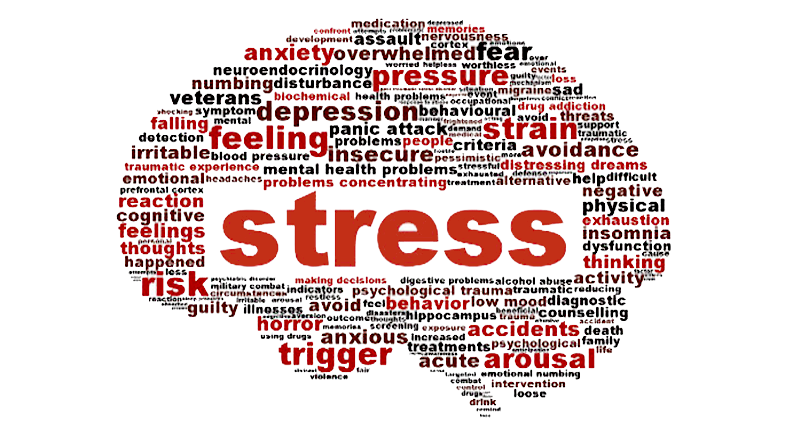Stressed Students
How Stress Affects You
According to the American Institute of Stress, in the United States, 77% of people said that they experience regular physical symptoms caused by stress.
The physical and emotional impact of stress are felt by students everyday, but it is not a topic that receives enough attention. This can be dangerous because health consequences arise if stress is not addressed properly.
Physical impacts of stress can include headache, fatigue, muscle pain, acne, and problems with sleep. Extreme consequences can result in eating disorders or cardiovascular problems such as increased blood pressure and heart attacks.
Emotional impacts of stress include sadness, irritability, anger issues, avoidance, depression, and anxiety.
Ms. Sneller, one of the health teachers at Long Reach High School, defines stress as “anything that demands time and energy.”
With such impactful consequences, the first step to combat stress is to identify where it stems from.
Besides not being well rested, other causes of stress include “lack of time management, difficulty resisting social media, and procrastinating,” according to Ms. Sneller.
Kwabla Boateng, a sophomore, stated that “family and volunteering” make him feel stressed because it takes up a good amount of time.
However, factors that contribute to experiencing stress can vary from one person to another. Jada Sanders, a junior, commented that the amount of work she receives from school, extracurricular activities, and issues in personal life contribute to her stress.
Boateng and Sanders’ feelings are consistent with Sneller’s definition of stress: volunteering, studying for exams, or preparing for a presentation take both time and energy. Add in deadlines and stress seems unavoidable.
As a result, students who feel stressed might start avoiding school and/or friends.
Ms. Sneller said, “withdrawal, not attending classes, and low quality of work” are some signs of stress in students. “Not getting enough sleep impacts the quality of work on assignments and assessments,” she explains.
Sneller also admits that students who withdraw socially “might also begin to develop interpersonal relationship problems.”
There are certain actions that students can take to deal with the overwhelming feeling. Ms. Sneller emphasized that students “have to know how to manage time and energy.”
Other ways to deal with that feeling is to reduce caffeine consumption because it increases stress levels. Going for a walk and getting fresh air is a great way to deal with stress because it helps the body return to a calmer state. Being well rested is a primary way to combat stress because sleep promotes high levels of energy.
It is important to understand the causes of stress, the impact it has, and when to seek help in order to prevent major health issues.


![Photo Courtesy of
A teen faces colorism at school and at home in 'Genesis Begins Again'
[Photograph]. (n.d.). NPR.https://www.npr.org/2019/01/31/690381040/a-teen-faces-colorism-at-school-and-at-home-in-genesis-begins-again
A complex-ion issue: Colorism [Photograph]. (n.d.). The Chronicle. https://hwchronicle.com/55860/features/a-complex-ion-issue-colorism/
The colorism issue [Photograph]. (n.d.). Issuu. https://issuu.com/overachievermagazine/docs/colourism
_issue_om](https://lrhslightningflash.com/wp-content/uploads/2021/06/Colorism-is-alive-475x380.jpg)
![Long Reach Boosters Club. (March 24, 2023 - 11:33pm). [Digital Image]. Long Reach Has Talent Show Spring 2023. Facebook, Retrieved April 17, 2023 from https://www.facebook.com/longreachboosters/posts/pfbid03kN5BKQj5TDefz1rtVZ5fTBBhjwA39UPPd8GctyMgFvY7B4RihH4rY4EqE7xPwikl.](https://lrhslightningflash.com/wp-content/uploads/2023/05/LR-Talent-Show-3-475x316.jpg)

